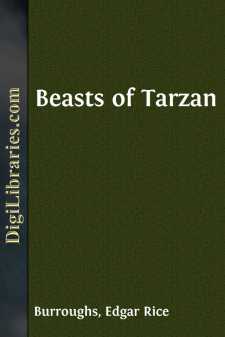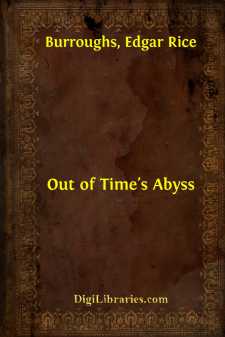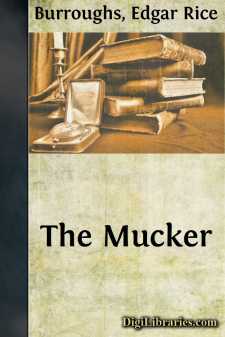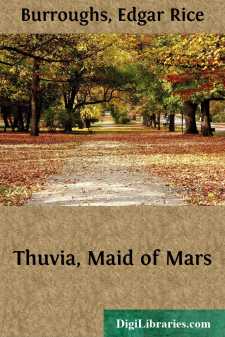Categories
- Antiques & Collectibles 13
- Architecture 36
- Art 48
- Bibles 22
- Biography & Autobiography 813
- Body, Mind & Spirit 142
- Business & Economics 28
- Children's Books 17
- Children's Fiction 14
- Computers 4
- Cooking 94
- Crafts & Hobbies 4
- Drama 346
- Education 46
- Family & Relationships 57
- Fiction 11829
- Games 19
- Gardening 17
- Health & Fitness 34
- History 1377
- House & Home 1
- Humor 147
- Juvenile Fiction 1873
- Juvenile Nonfiction 202
- Language Arts & Disciplines 88
- Law 16
- Literary Collections 686
- Literary Criticism 179
- Mathematics 13
- Medical 41
- Music 40
- Nature 179
- Non-Classifiable 1768
- Performing Arts 7
- Periodicals 1453
- Philosophy 64
- Photography 2
- Poetry 896
- Political Science 203
- Psychology 42
- Reference 154
- Religion 513
- Science 126
- Self-Help 84
- Social Science 81
- Sports & Recreation 34
- Study Aids 3
- Technology & Engineering 59
- Transportation 23
- Travel 463
- True Crime 29
Tarzan of the Apes
Categories:
Description:
Excerpt
Out to Sea
I had this story from one who had no business to tell it to me, or to any other. I may credit the seductive influence of an old vintage upon the narrator for the beginning of it, and my own skeptical incredulity during the days that followed for the balance of the strange tale.
When my convivial host discovered that he had told me so much, and that I was prone to doubtfulness, his foolish pride assumed the task the old vintage had commenced, and so he unearthed written evidence in the form of musty manuscript, and dry official records of the British Colonial Office to support many of the salient features of his remarkable narrative.
I do not say the story is true, for I did not witness the happenings which it portrays, but the fact that in the telling of it to you I have taken fictitious names for the principal characters quite sufficiently evidences the sincerity of my own belief that it MAY be true.
The yellow, mildewed pages of the diary of a man long dead, and the records of the Colonial Office dovetail perfectly with the narrative of my convivial host, and so I give you the story as I painstakingly pieced it out from these several various agencies.
If you do not find it credible you will at least be as one with me in acknowledging that it is unique, remarkable, and interesting.
From the records of the Colonial Office and from the dead man's diary we learn that a certain young English nobleman, whom we shall call John Clayton, Lord Greystoke, was commissioned to make a peculiarly delicate investigation of conditions in a British West Coast African Colony from whose simple native inhabitants another European power was known to be recruiting soldiers for its native army, which it used solely for the forcible collection of rubber and ivory from the savage tribes along the Congo and the Aruwimi. The natives of the British Colony complained that many of their young men were enticed away through the medium of fair and glowing promises, but that few if any ever returned to their families.
The Englishmen in Africa went even further, saying that these poor blacks were held in virtual slavery, since after their terms of enlistment expired their ignorance was imposed upon by their white officers, and they were told that they had yet several years to serve.
And so the Colonial Office appointed John Clayton to a new post in British West Africa, but his confidential instructions centered on a thorough investigation of the unfair treatment of black British subjects by the officers of a friendly European power. Why he was sent, is, however, of little moment to this story, for he never made an investigation, nor, in fact, did he ever reach his destination.
Clayton was the type of Englishman that one likes best to associate with the noblest monuments of historic achievement upon a thousand victorious battlefields—a strong, virile man—mentally, morally, and physically.
In stature he was above the average height; his eyes were gray, his features regular and strong; his carriage that of perfect, robust health influenced by his years of army training....













